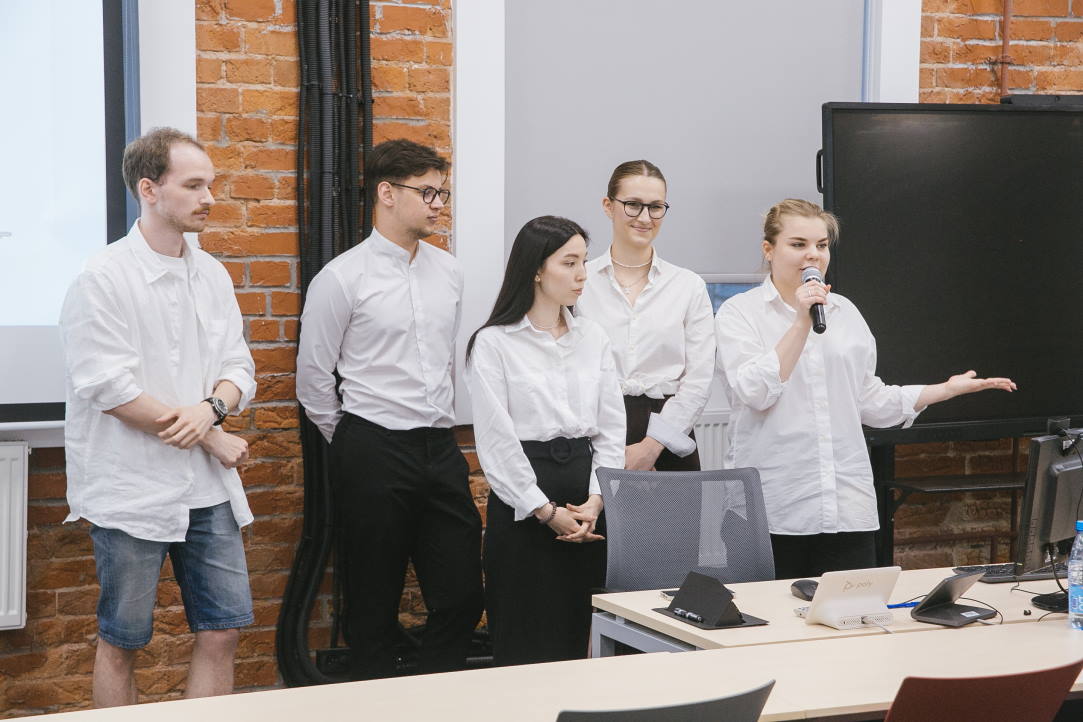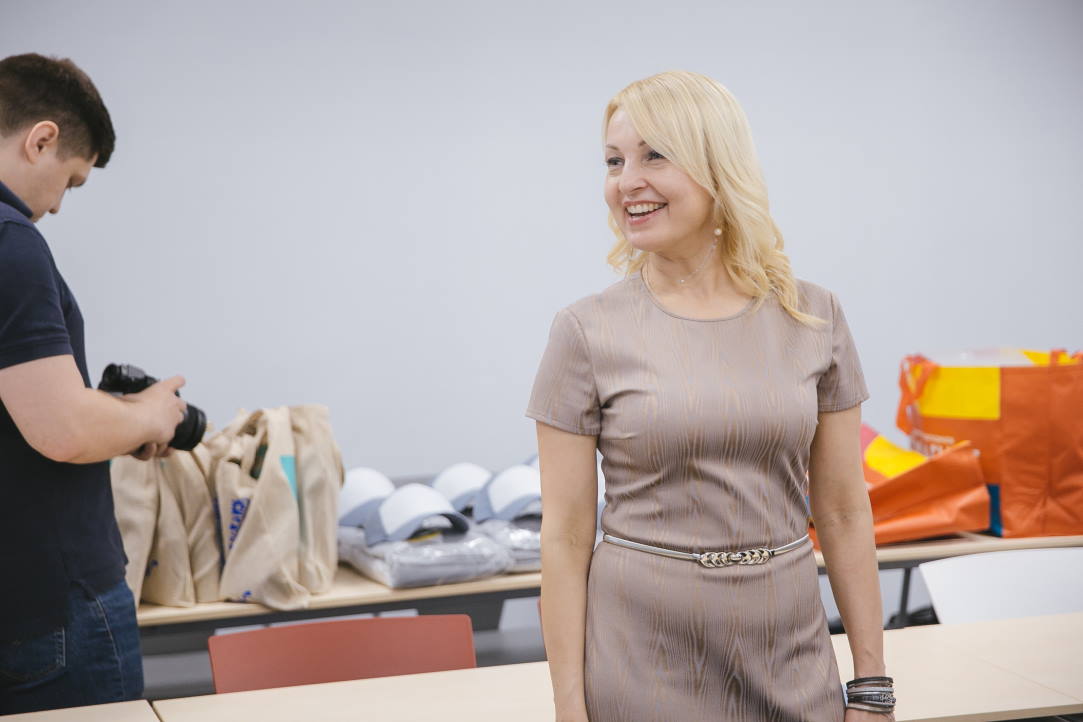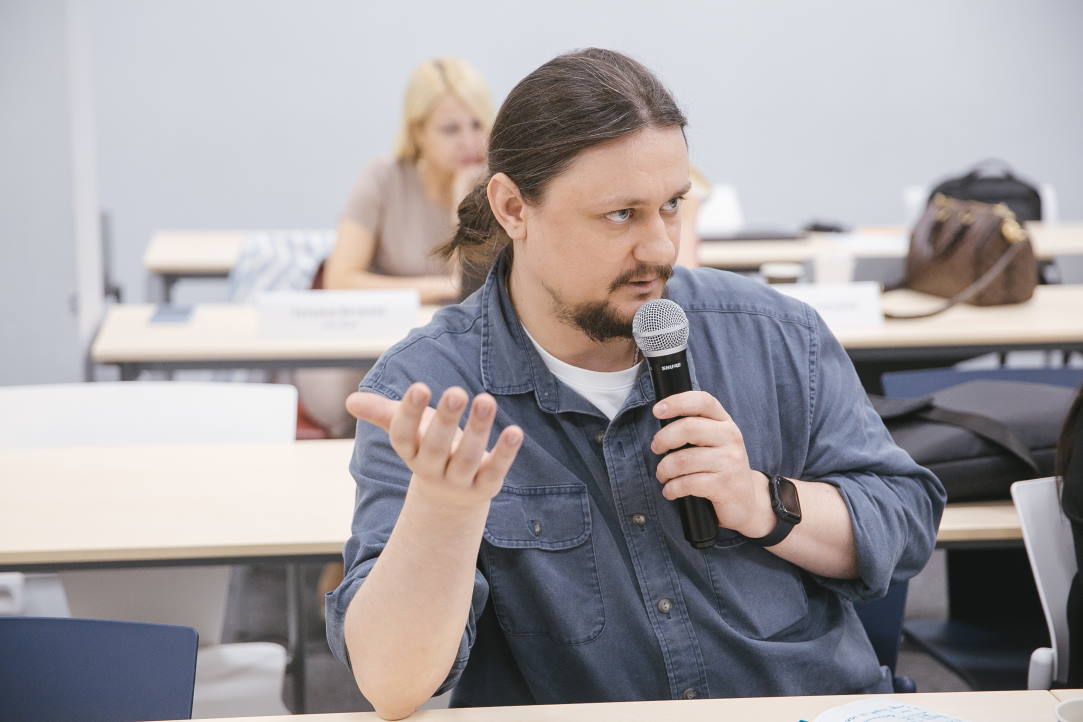Students of HSE University’s GSB Present Results of Joint ESG Project with Big Business

HSE University’s Graduate School of Business has hosted the defence of the ‘Sustainable Development Practices’ term papers with an emphasis on the ESG agenda. First-year students of the Master’s programmes ‘Marketing: Digital Technology and Marketing Communications’ and ‘Retail Management’ presented group consulting projects on solving real-world cases with social and/or environmental issues from partner companies of the E+Change programme. This is the third year of this unique project between the GSB and E+Change, and is continuing to attract more and more participating companies.
‘The new format involves a lot of responsibility. The students coped with the task extremely well, and we are very pleased to see the results of the competition commission, as well as hearing positive feedback from the experts. Understanding the topic of ESG is an integral part of the professional training of managers today, so we have built the development of ESG projects into the curriculum. In addition, projects are implemented on the basis of collaboration with partners, based on real-life examples,’ said Tatyana Vetrova, Academic Supervisor of the ‘Marketing: Digital Technology and Marketing Communications’ programme.

The competition commission consists of heads and top managers from the following companies: Unilever in Russia and Belarus, Vkusno i tochka, Russian Red Cross, Better (Okkam) Agency, the Magnit retail chain, and SIBUR. The students worked on materials provided by the companies and conducted their own quantitative and qualitative research.
‘The E+Change programme aims to promote the ESG agenda in marketing. The joint project with GSB is very important to us, because within its framework, we are able to interact with the young generation of specialists—future case developers, competition judges, and visionaries of business development, showing how, based on solving the real problems of a company, they can influence the environment and society by contributing to sustainable development,’ said Sofya Popova, Head of the E + Change programme.
‘It is especially important for us to work with students, because students are not only the future of advertising, but also the future of sustainable development. Sustainability marketing is a rather new and complex phenomenon for Russia, and so it is all the more important to share experience, form a culture of responsible communications, and attract new personnel at the stage when they are being trained. I am pleasantly surprised by the level of projects that we saw at the defence: students offered mature and creative solutions based on excellent analytics and modern approaches,’ said Vladlen Zamorsky, Director of Sustainable Development at Okkam, CEO of the Better platform.

The commission was especially impressed by projects using AI technologies: students used artificial intelligence to save time and visualise their ideas better.
‘Unilever has been participating with great interest in the E+ and GSB project for the last three years. As part of its Compass 2030 Sustainable Development Plan, the company is committed to helping ten million young people gain the skills they need to prepare for employment by 2030—and this project allows us to support students for six months, sharing real business cases and expertise with us. This year’s projects impressed us with their structure, entrepreneurial approach, and creativity,’ said Anastasia Novak, Head of Sustainable Development Projects at Unilever.
‘In the beginning, it was very scary, since I came to this Master’s programme from a technical university. At GSB, I was struck by the approach to learning: the emphasis on project work, communication with real customers, and work on real projects. While working on a project for the Russian Red Cross, I was struck by how important marketing can be in actually saving lives. During the project, we met blood and bone marrow donors, talked to people at blood donation points, and saw how much they live by these ideas. You might think that marketing is about numbers and analytics, but it turns out that it is marketing that paves the way to saving lives,’ Polina Sukhareva, first-year student of the Master’s programme ‘Marketing: Digital Technology and Marketing Communications’.
‘The project gave us a large amount of knowledge on the topic of ecology, as well as the processes and goals of sustainable development. For the project for Vkusno i tochka, we came up with a character—Vitya the Fox, and with his arrival, all our ideas and developments on the topic of ecological alphabet combined into a harmonious, bright concept. Our task was to convey the ideas of ecology to the consumer in a simple and understandable way, and to create our character, we used neural networks,’ Margarita Yurova, first-year student of the Master’s programme ‘Marketing: Digital Technology and Marketing Communications’.
‘We have already worked on projects for several companies: we did research on the furniture market for Avito and we carried out a project on recycling reused plastic for SIBUR. We even went to a research centre to develop and test polymer products. It was important for us to understand what kind of product we were working with, and how this market functions. I already work as a marketer, and my training is already helping me solve some problems related to my career,’ Maria Khomyakova, first-year student of the Master’s programme ‘Marketing: Digital Technology and Marketing Communications’.
International admissions to master’s programmes at HSE University are open until August 13th .

